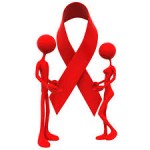Is Alcoholism Genetic? What Are the Chances You Will Inherit it?
Content
The
most common initial approach was linkage analysis, in which markers throughout the
genome were measured to identify chromosomal regions that appeared to segregate with
disease across many families. The drawback to this approach is
that linkage studies find broad regions of the genome, often containing many
hundreds of genes. In many cases, the initial linkage studies were followed by more
detailed genetic analyses employing single nucleotide polymorphisms (SNPs) that were
genotyped at high density across the linked regions.
- Research also shows a connection between heavy alcohol use and heart disease, respiratory disease, and cancer.
- What this means for family members of alcoholics is that you are not necessarily going to abuse alcohol yourself.
- We can help you tackle any social or environmental triggers contributing to your alcohol abuse.
- Commonly, genome wide association studies (GWAS) of alcoholism have focused on phenotypes based on the Diagnostic & Statistical Manual of Mental Disorders (DSM)[14].
- These medicines work by reducing cravings, decreasing the impact of symptoms, and causing intolerable side effects upon alcohol consumption.
People with a family history of alcohol addiction are up to 50 percent more likely to develop this condition than those with no genetic influences. If a person experiences any 2 to 3 symptoms, he or she will be diagnosed with mild alcohol use disorder. Any 4 to 5 symptoms are considered moderate and is alcoholism inherited 6 or more are considered severe. People with mild AUD may just need to commit to an outpatient program. Those with moderate or severe disorders may need to go through a medically supervised detoxification program. And they may need to attend a series of therapy sessions in a treatment center.
Health Benefits of Iodine
We want to give recovering addicts the tools to return to the outside world completely substance-free and successful. If you or a loved one suffer from alcohol use disorder, help is available. Contact Ark Behavioral Health today to learn about our addiction treatment programs. By the same measure, those who choose not to drink alcohol at all during their lives will not develop AUD, even if they are unknowingly at high risk, genetically speaking. However, while researchers have made great strides in associating certain variations of genes with AUD, the reality is that genetics, heredity, behavior, and addiction are extremely complex and often mysterious subjects. This information helps explain why drinking problems tend to run in families and why rates of alcohol abuse have historically been higher or lower in certain populations.
Working with a team of clinical professionals is the best way to ensure a safe, comfortable, and effective recovery from alcoholism. There are obvious signs of alcohol abuse, like a DUI arrest, or more subtle signs, like slipping performance at work or in school. Alcoholism, also known as alcohol use disorder (AUD), is a condition where someone is unable https://ecosoberhouse.com/article/alcohol-poisoning-signs-and-symptoms/ to control their drinking despite negative consequences. It is a type of substance use disorder that revolves around the excessive and compulsive use of alcohol. If you or a loved one has a high risk for alcohol addiction, knowing the early warning signs of dependence helps. Peer pressure is also an important factor, especially with adolescents.
Alcohol Abuse Is Influenced by Environmental and Genetic Factors
Ark Behavioral Health offers 100% confidential substance abuse assessment and treatment placement tailored to your individual needs. This distinction is important when discussing your risk of becoming an alcoholic. Inpiduals from families with an annual household income of more than $75,000 are more likely to become an alcoholic than those with lower means. Our genes determine our physical traits and to some extent, our behavioral characteristics.

It is estimated that while there are over a dozen genes that contribute to a tendency towards alcohol abuse, each on its own shows a limited correlation to alcoholism without environmental stressors. Therefore, the more genes present, the higher the likelihood of developing AUD, and thus we can infer that genetics do play some role. When it comes down to it, the environmental elements of growing up with an alcoholic parent are just as impactful, if not more, than genetic predisposition. Each individual risk factor added to a childhood household (including lack of parental supervision, unchecked aggressive behavior, and availability of alcohol) can contribute to an increase in the likelihood of substance abuse.
Is alcohol use disorder genetic? How having a relative with AUD predisposes you to developing it
Despite recurring attempts to find and consume alcohol, those with alcohol use disorder might also go through periods over which they attempt to reduce or give up alcohol. It’s common for people to know they want to quit but be overcome by their addiction and find they’re unable to stop drinking. This article will explain the signs and symptoms of alcohol addiction and outline the steps to take if you or someone you know may have an alcohol use disorder. At Family First Intervention, we have worked hard to educate families on alcoholism and recovery from alcohol addiction.
Alcohol use disorder is a pattern of alcohol use that involves problems controlling your drinking, being preoccupied with alcohol or continuing to use alcohol even when it causes problems. This disorder also involves having to drink more to get the same effect or having withdrawal symptoms when you rapidly decrease or stop drinking. Alcohol use disorder includes a level of drinking that’s sometimes called alcoholism. What this means for family members of alcoholics is that you are not necessarily going to abuse alcohol yourself.
What else predisposes you to alcohol use disorder?
Getting treatment for a family member who suffers from alcohol use disorder is paramount for them to be healthy long-term. Reciprocal drinking is common early in relationships, and it is often hard to discern if someone is not aware of the signs. However, as the relationship progresses and you get to know each other better, if you notice that the drinking behaviors are problematic and don’t say anything, your inaction is enabling the problem to continue. Growing up around alcohol alone will not cause an individual to develop an alcohol use disorder, and it can increase the chance of engaging in alcohol use that could sow the seeds of progressive alcoholism. “The risk conferred by the ADH1B gene is one of the strongest single-gene effects seen in people with a psychiatric illness, but overall, it explains only a small proportion of the risk,” said Agrawal. The drug has been shown to work in some, but not all, people with alcohol dependence, according to the National Institute of Alcohol Abuse and Alcoholism (NIAAA).
Theo Healthplus.vn






Chưa có bình luận